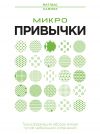Текст книги "Лучшие любовные истории / The Best Love Stories"

Автор книги: Томас Гарди
Жанр: Иностранные языки, Наука и Образование
Возрастные ограничения: +12
сообщить о неприемлемом содержимом
Текущая страница: 2 (всего у книги 7 страниц) [доступный отрывок для чтения: 2 страниц]
It was now the usual hour of his daily interview with Beatrice. Before going down into the garden, Giovanni looked at his figure in the mirror, – only natural for a beautiful young man, yet this, probably, proved a certain shallowness of feeling and insincerity of character. He said to himself that his features had never before been so good, nor his eyes so bright.
“At least,” thought he, “her poison has not yet got into my system. I am no flower to die in her hands.”
With that thought he turned his eyes on the bouquet, which he had held in his hand for some time. A thrill of horror shot through him when he saw that those flowers were already beginning to fade. Giovanni grew white as marble, and stood motionless before the mirror, staring at his own reflection there as at something frightful. He remembered Baglioni’s remark about the fragrance that he felt in the room. It must have been the poison in his breath! Recovering from his stupor, he began to look for a spider in the corners of his room. He saw an active spider and breathed at it. The spider suddenly stopped moving; the web vibrated together with its body, and the spider hung dead in the web.
“Cursed! cursed!” murmured Giovanni, addressing himself. “Have you grown so poisonous that this deadly insect is killed by your breath?”
At that moment a rich, sweet voice came up from the garden.
“Giovanni! Giovanni! Come down!”
“Yes,” murmured Giovanni again. “She is the only being whom my breath may not kill! Would that it might![33]33
Would that it might! – Хотел бы я, чтоб это было иначе!
[Закрыть]”
He rushed down, and in an instant was standing before the bright and loving eyes of Beatrice. A moment ago his rage and despair had been so fierce that he desired nothing so much as to kill her by a glance; but in her presence all this ugly mystery seemed an illusion, and he believed that the real Beatrice was an angel. He was not able to reach such high faith, still her presence had not lost its magic for him. Giovanni’s rage had left him, but the young man was gloomy. Beatrice immediately felt that there was blackness between them which neither he nor she could pass. They walked on together, sad and silent, and came to the marble fountain and to its pool of water on the ground, where grew the shrub with the purple blossoms. Giovanni was frightened by his delight – the appetite – with which he was inhaling the fragrance of the flowers.
“Beatrice,” asked he, “where did this shrub come from?”
“My father created it,” answered she simply.
“Created it! created it!” repeated Giovanni. “What do you mean, Beatrice?”
“He knows the secrets of Nature,” replied Beatrice; “and, at the hour when I was born, this plant sprang from the ground, the child of his science, of his intellect, while I was but his human child. Do not approach it!” continued she, observing with terror that Giovanni was coming nearer to the shrub. “I, dearest Giovanni, – I grew up and blossomed with the plant, and I inhaled its breath. It was my sister, and I loved it as if it were human. Alas! – did you not suspect it?”
Here Giovanni looked so darkly upon her that Beatrice paused and trembled. But her faith in his love was so great that she had no doubt for an instant.
“There was an awful doom,” she continued, “the effect of my father’s fatal love of science, which estranged me from all society of my kind.[34]34
which estranged me from all society of my kind – который сделал меня чужой в обществе себе подобных
[Закрыть] Until Heaven sent you, dearest Giovanni, oh, how lonely was your poor Beatrice!”
“Was it a hard doom?” asked Giovanni, fixing his eyes upon her.
“Only lately have I known how hard it was,” answered she, tenderly. “Oh, yes; but my heart was quiet.”
Giovanni’s rage broke through like a lightning out of a dark cloud.
“The cursed one!” cried he with anger. “You have cut me also from all the warmth of life and dragged me into your region of horror!”
“Giovanni!” exclaimed Beatrice, turning her large bright eyes upon his face.
“Yes, poisonous thing!” repeated Giovanni, beside himself with passion. “You have done it! You have filled my veins with poison! You have made me as hateful, as ugly and deadly as yourself – a world’s monster! Now, if our breath is as fatal to ourselves as to all others, let us join our lips in one kiss of hatred, and so die!”
“What has happened to me?” murmured Beatrice. “Holy Virgin,[35]35
Holy Virgin – святая мадонна
[Закрыть] pity me, a poor heart-broken child!”
“Do you pray?” cried Giovanni, still with the same rage. “Your prayers, as they come from your lips, fill the atmosphere with death. Yes, yes; let us pray! Let us go to church! They that come after us will be killed!”
“Giovanni,” said Beatrice, “why do you join yourself with me in those terrible words? I, it is true, am horrible, as you say. But you, – you can go out of the garden and forget there ever was on earth such a monster as poor Beatrice?”
“Do you pretend ignorance?[36]36
Do you pretend ignorance? – Ты притворяешься, что ничего не знаешь?
[Закрыть]” asked Giovanni. “Look! I have received this power from the daughter of Rappaccini.”
There were some insects flying through the air, and round Giovanni’s head, and were evidently attracted towards him by the same fragrance as that of the shrubs. He breathed at them, and smiled bitterly at Beatrice as some of the insects fell dead upon the ground.
“I see it! I see it!” shrieked Beatrice. “It is my father’s fatal science! No, no, Giovanni; it was not I! Never! never! I dreamed only to love you and be with you a little time, and to let you go away, leaving your image in my heart; for, Giovanni, believe it, though my body is filled with poison, my soul belongs to God, and wants love as its daily food. Kill me! Oh, what is death after such words as yours? But it was not I. I would never have done it.”
They stood, cut off from all the human race. If they were cruel to one another, who would be kind to them? Besides, thought Giovanni, there was still a hope of his returning within the limits of ordinary nature, and leading Beatrice by the hand? O, weak, and selfish, and unworthy man, that could dream of an earthly happiness, after such deep love had been shattered as was Beatrice’s love by Giovanni’s cruel words! No, no; there could be no such hope. She must pass heavily, with that broken heart, across the borders of Time – she must forget her grief in the light of immortality.
But Giovanni did not know it.
“Dear Beatrice,” said he, approaching her, while she shrank away as always at his approach, but now with a different impulse, “dearest Beatrice, our fate is not yet so desperate. Look! there is a medicine, made up of ingredients opposite to those by which your awful father has brought this trouble upon you and me. Let us take it together and be saved!”
“Give it me!” said Beatrice. She added, “I will drink it; wait for the result.”
She put Baglioni’s antidote to her lips; and, at the same moment, the figure of Rappaccini emerged from the portal and came slowly towards the marble fountain. As he came near, the pale man of science seemed to gaze with a triumphant expression at the beautiful young man and girl, as might an artist who had spent his life in painting a picture and finally was satisfied with his success. He paused; he held his hands over them; and those were the same hands that had thrown poison into their veins. Giovanni trembled. Beatrice pressed her hand upon her heart.
“My daughter,” said Rappaccini, “you are no longer lonely in the world. Pluck one of those flowers from your sister shrub and let your bridegroom wear it. It will not harm him now. My science and the sympathy between you and him have so changed his system that he now is different from common men, as you are from ordinary women. Pass on through the world, most dear to one another and dreadful to all others!”
“My father,” said Beatrice, weakly, – and still as she spoke she kept her hand upon her heart, “why did you bring this doom upon your child?”
“Doom!” exclaimed Rappaccini. “What do you mean, foolish girl? Do you call doom the power that no enemy has – doom, to be as terrible as you are beautiful? Would you prefer to be a weak woman?”
“I would prefer to be loved, not feared,” murmured Beatrice, sinking down upon the ground. “But now it does not matter. I am going, father, where the evil which you put in me will pass away like a dream – like the fragrance of these poisonous flowers, which will no longer poison my breath among the flowers of Eden. Farewell, Giovanni! Your words of hatred are like lead within my heart; but they, too, will fall away as I go up. Oh, was there not, from the first, more poison in your nature than in mine?”
To Beatrice, for whom poison had been life, the powerful antidote was death; and thus the poor victim of man’s zeal for science died there, at the feet of her father and Giovanni.
An Imaginative Woman
After Thomas Hardy (1840–1928)
When William Marchmill had finished looking for lodgings at the well-known watering-place of Solentsea in Upper Wessex,[37]37
watering-place of Solentsea in Upper Wessex – морской курорт Солентси в Верхнем Уэссексе. Действие многих произведений Томаса Гарди происходит на юге и юго-западе Англии, эту местность он называет Уэссекс по названию древнего англо-сакского королевства, существовавшего в этих местах. Уэссекс Гарди подразделяется на части и охватывает несколько графств современной Англии, большинство городов в произведениях Гарди имеют вымышленные названия, но соответствуют реальным городам. Упомянутый курорт соответствует городу Саутси в графстве Гемпшир.
[Закрыть] he returned to the hotel to find his wife. She, with the children, had walked along the shore, and Marchmill followed them there.
“How far you’ve gone!” Marchmill said, when he came up to his wife, who was reading as she walked, the three children were considerably further ahead with the nurse.
Mrs. Marchmill started out of the thoughts into which the book had thrown her. “Yes,” she said, “you’ve been such a long time. I was tired of staying in the hotel.”
“Well, I have had trouble to find rooms. Will you come and see if what I’ve chosen on will do?[38]38
if what I’ve chosen on will do – подойдёт ли то, что я выбрал
[Закрыть] There is not much room, I am afraid; but I couldn’t find anything better. The town is rather full.”
The couple left the children and nurse to continue their walk, and went back together.
Well-balanced in age, matched in personal appearance, and having the same domestic requirements, this couple differed in temper, though even here they did not often clash. They did not have common tastes. Marchmill considered his wife’s likes and interests silly; she considered his sordid and material. The husband was a manufacturer of weapons in a city in the north, and his soul was in that business always; the lady was sensitive and romantic. Ella, shrank from detailed knowledge of her husband’s business whenever she thought that everything he manufactured was for the destruction of life. She could only recover her balance by thinking that some, at least, of his weapons were sooner or later used for killing animals almost as cruel to others in their species as human beings were to theirs.
She had never considered this occupation of his as any objection to having him for a husband. Indeed, the necessity of getting married at all cost, which all good mothers teach, kept her from thinking of it at all till she had married William and had passed the honeymoon. Then, like a person who has stumbled upon something in the dark, she wondered what she had got; mentally walked round it, estimated it; whether it was rare or common; contained gold, silver, or lead; was everything to her or nothing.
She came to some vague conclusions, and since then had pitied her husband for want of refinement, pitying herself, and daydreaming, which perhaps would not much have disturbed William if he had known of it.
Her figure was small, elegant, she was dark-eyed, and quick in movement. Her husband was a tall, long-faced man, with a brown beard; he was, it must be added, usually kind and tolerant to her. He spoke short sentences, and was highly satisfied that weapons were a necessity.
Husband and wife walked till they had reached a house, which stood in a terrace facing the sea, and had a small garden in front, stone steps led up to the porch.
The landlady, who had been watching for the gentleman’s return, met them and showed the rooms. Mrs. Marchmill said that she liked the house; but as it was small, they would take it only if they could have all the rooms.
The landlady was disappointed. She wanted the visitors to be her tenants very badly, she said. But unfortunately two of the rooms were occupied permanently by a bachelor gentleman. As he kept on his apartment all the year round and was a very nice and interesting young man, who gave no trouble, she did not like to turn him out for a month because of them. “Perhaps, however,” she added, “he might offer to go for some time.”
They would not hear of this,[39]39
they would not hear of this – они не желали об этом слышать
[Закрыть] and went back to the hotel to look for other lodgings. Hardly had they sat down to tea[40]40
hardly had they sat down to tea – едва они сели пить чай, как
[Закрыть] when the landlady called. Her gentleman, she said, had offered to give up his rooms for three or four weeks.
“It is very kind, but we won’t inconvenience him in that way,” said the Marchmills.
“O, it won’t inconvenience him!” said the landlady. “You see, he’s a different sort of young man from most – dreamy, solitary, rather melancholy – and he cares more to be here when there’s not a soul in the place, than now in the season. He’s going to a little cottage on the Island opposite, for a change.”
The Marchmill family moved into the house next day, and it seemed to suit them very well. After lunch Mr. Marchmill walked toward the pier, and Mrs. Marchmill, having sent the children to the shore, looked round the rooms more closely.
In the small back sitting room, which had been the young bachelor’s, she found a lot of books.
“I’ll make this my own little room,” said Mrs. Marchmill to the landlady, “because the books are here. By the way, the person who has left seems to have very many. He won’t mind my reading some of them, Mrs. Hooper, I hope?”
“O, dear no, ma’am. Yes, he has a good many. You see, he is a poet – yes, really a poet – and he has a little income of his own, which is enough to write verses on.”
“A Poet! O, I did not know that.”
Mrs. Marchmill opened one of the books, and saw the owner’s name written on the title-page. “Dear me!” she continued; “I know his name very well – Robert Trewe – of course I do; and his writings! And it is his rooms we have taken, and him we have turned out of his home?”
Ella Marchmill, sitting down alone a few minutes later, thought with interested surprise of Robert Trewe. Her own history will best explain that interest. Herself the only daughter of a writer, she had during the last year or two begun writing poems, in an attempt to find to express her painful emotions caused by the routine of daily life and of bearing children to a weapons manufacturer. These poems, under male pseudonym, had appeared in various small magazines, and in two cases in rather well-known ones. In one of the well-known ones the page which had her poem at the bottom had at the top a few verses by this very man, Robert Trewe. After that Ella, otherwise “John Ivy,” had watched with much attention the appearance of verse of Robert Trewe.
Trewe’s verse contrasted with that of most other poets. With sad and hopeless envy Ella Marchmill often read the rival poet’s work, always so much stronger than her own lines. She imitated him, and her inability to reach his level sent her into fits of depression. Months passed away thus, till she observed that Trewe had collected his pieces into a volume, which was published, and was praised, and had a sale quite sufficient to pay for the printing.
This suggested to John Ivy the idea of collecting her pieces also and making up a book of her verses. Her husband paid for the publication; a few reviews noticed her poor little volume; but nobody talked of it, nobody bought it.
The author’s thoughts were interrupted by the discovery that she was going to have a third child, and her failure as a poet had perhaps less effect upon her mind than it might have done if she had more time for thinking. But, though less than a poet of her century, Ella was more than a mother and wife, and lately she had begun to feel the old dissatisfaction once more. And now by chance she found herself in the rooms of Robert Trewe.
She rose from her chair and searched the rooms with the interest of a fellow-tradesman.[41]41
a fellow-tradesman – собрат-ремесленник
[Закрыть] Yes, the volume of his verse was among the rest. Though quite familiar with its contents, she read it here as if it spoke aloud to her, then called up Mrs. Hooper, the landlady, and asked her again about the young man.
“Well, I’m sure you’d be interested in him, ma’am, if you could see him, only he’s so shy that I don’t suppose you will.” Mrs. Hooper was not surprised at Mrs. Marchmill’s interest in her tenant. “Lived here long? Yes, nearly two years. He keeps on his rooms even when he’s not here: the soft air of this place suits him, and he likes to be able to come back at any time. He is mostly writing or reading, and doesn’t see many people, though he is such a good, kind young fellow that people would only be too glad to be friendly with him if they knew him. You don’t meet kind-hearted people every day.”
“Ah, he’s kind-hearted… and good.”
“Yes. ‘Mr. Trewe,’ I say to him sometimes, ‘you are rather out of spirits.’ ‘Well, I am, Mrs. Hooper,’ he’ll say. ‘Why not take a little change?’ I ask. Then in a day or two he’ll say that he will take a trip to Paris, or Norway, or somewhere; and he comes back all the better for it.[42]42
all the better for it – в гораздо лучшем настроении
[Закрыть]”
“Ah, indeed! His is sensitive, no doubt.”
“Yes. Still he’s odd in some things… But we get on very well.”
This was the beginning of a series of conversations about the poet as the days went on. On one of these occasions Mrs. Hooper drew Ella’s attention to what she had not noticed before: lines in pencil on the wallpaper behind the curtains at the head of the bed.
“O! let me look,” said Mrs. Marchmill, as she bent her pretty face close to the wall.
“These,” said Mrs. Hooper, “are the very beginnings and first thoughts of his verses. He has tried to rub most of them out, but you can read them still. I believe that he wakes up in the night, you know, with some line in his head, and puts it down there on the wall not to forget it by the morning. Some of these very lines you see here I have seen afterwards in the magazines. Some are newer; indeed, I have not seen that one before. I think it was done only a few days ago.”
“O, yes!..”
Ella Marchmill flushed without knowing why, and suddenly wished Mrs. Hooper to go away. She realised it was personal interest rather than literary and wanted to read the lines alone.
Ella’s husband found it much pleasanter to go sailing without his wife, who was a bad sailor,[43]43
who was a bad sailor – которая страдала морской болезнью
[Закрыть] than with her. Thus, while the manufacturer got a great deal of change and sea-air, the life of Ella was monotonous enough, she spent some hours each day in bathing and walking up and down the shore. But the poetic impulse grew strong, she was burnt by an inner flame and hardly noticed what was going on around her.
She had read till she knew by heart Trewe’s last little volume of verses, and spent a great deal of time in attempting to write something like that, till, in her failure, she burst into tears. The personal element in the magnetic attraction Mr. Trewe had for her was so much stronger than the intellectual one and she could not understand it. She lived among his things and his verses; but he was a man she had never seen.
In the natural way of passion, her husband’s love for her had not survived, except in the form of friendship, any more than her own for him. Being a woman of strong emotions, she required something to support her feelings. By chance she got this material, which was far better than chance usually offers.
One day the children had been playing hide-and-seek in a closet, where they took a coat. Mrs. Hooper explained that it belonged to Mr. Trewe, and put it in the closet again. Ella went later in the afternoon, when nobody was in that part of the house, opened the closet, took the coat, and put it on, with the hat belonging to it.
“It might inspire me to rival him, even though he is a genius!” she said.
Her eyes always grew wet when she thought like that, and she turned to look at herself in the glass. His heart had beaten inside that coat, and his brain had worked under that hat at levels of thought she would never reach. The idea of her weakness beside him made her feel quite sick. Before she took the things off her the door opened, and her husband entered the room.
“What the devil – ”
She blushed, and took them off.
“I found them in the closet here,” she said, “and put them on as a joke. What else do I have to do? You are always away!”
“Always away? Well…”
That evening she had a further talk with the landlady, who might herself have some tender feelings for the poet, so ready was she to speak about him.
“You are interested in Mr. Trewe, I know, ma’am,” she said; “and he has just sent a note to say that he is going to call tomorrow afternoon to look up some books of his that he wants. May he take them from your room?”
“O, yes!”
“You could very well meet Mr. Trewe then, if you’d like to!”
She went to bed dreaming about him.
Next morning her husband observed: “I’ve been thinking of what you said, Ell: that I have gone about a good deal and left you without much attention. Perhaps it’s true. Today I’ll take you with me on board the yacht.”
For the first time in her life Ella was not glad at such an offer. She stood thinking. The desire to see the poet she was now in love with did not let her accept the offer.
“I don’t want to go,” she said to herself. “I can’t bear to be away! And I won’t go.”
She told her husband that she had changed her mind and would rather stay at home.[44]44
would rather stay at home – лучше останется дома
[Закрыть] He did not mind, and went away.
For the rest of the day the house was quiet, as the children had gone out to the shore. There was a knock at the door.
Mrs. Marchmill did not hear any servant go to answer it, and she became impatient. The books were in the room where she sat; but nobody came up. She rang the bell.
“There is some person waiting at the door,” she said.
“O, no, ma’am. He’s gone long ago. I answered it,” the servant replied, and Mrs. Hooper came in herself.
“So disappointing!” she said. “Mr. Trewe not coming after all!”
“But I heard him knock!”
“No; that was somebody looking for lodgings. I tell you that Mr. Trewe sent a note just before lunch to say I needn’t get any tea for him, as he would not require the books, and wouldn’t come to take them.”
Ella was miserable, and for a long time could not even re-read his verse, so heartbroken she was. When the children came in, and ran up to her to tell her of their adventures, she could not feel that she cared about them half as much as usual.
“Mrs. Hooper, have you a photograph of – the gentleman who lived here?” She was shy in mentioning his name.
“Why, yes. It’s in the frame in your own bedroom, ma’am.”
“No; the Royal Duke and Duchess are in that.”
“Yes, but he’s behind them. As he went away he said: “Cover me up from those strangers that are coming. I don’t want them to look at me, and I am sure they won’t want me to look at them.” So I put the Duke and Duchess in front of him. If you take ’em out you’ll see him under. Lord, ma’am, he wouldn’t mind if he knew it! He didn’t think the next tenant would be such an attractive lady as you.”
“Is he handsome?” she asked timidly.
“I call him so. Some, perhaps, wouldn’t. I think you would, though some would say he’s more striking than handsome; a large-eyed thoughtful fellow, you know, such as you’d expect a poet to be.”
“How old is he?”
“Several years older than yourself, ma’am; about thirty-one or two, I think.”
Ella was a few months over thirty herself; but she did not look so much. Though quite young, she was entering that stage of life in which emotional women begin to suspect that last love may be stronger than first love. She thought of Mrs. Hooper’s remark, and said no more about age.
Just then a telegram was brought up. It came from her husband, who had gone down the Channel[45]45
the Channel – Ла-Манш
[Закрыть] with his friends in the yacht, and would not be able to get back till next day.
After her light dinner Ella walked about the shore with the children, thinking of the yet uncovered photograph in her room. On learning[46]46
on learning – узнав
[Закрыть] that her husband was to be absent that night she had not rushed upstairs and opened the picture-frame, but waited till she could be alone, and the occasion could be made more romantic by silence, candles, sea and stars outside.
The children had been sent to bed, and Ella soon followed, though it was not yet ten o’clock. She now made her preparations, reading several pages of Trewe’s tenderest verses. Next she took the portrait-frame to the light, opened the back, and took out the portrait.
It was a striking face. The large dark eyes described by the landlady showed his misery, they looked out from beneath well-shaped brows as if they were reading your face, and were not happy at what they saw.
Ella murmured in her tenderest tone: “And it’s you who’ve so cruelly beaten me so many times!”
Her eyes filled with tears, and she touched the photograph with her lips. Then she laughed nervously.
She thought how wicked she was, a woman having a husband and three children, to let herself think of a stranger in this manner. No, he was not a stranger! She knew his thoughts and feelings as well as she knew her own; they were, in fact, the same thoughts and feelings as hers.
“He’s nearer my soul, he’s closer to real me than Will is, after all, even though I’ve never seen him,” she said.
She laid his book and picture on the table and re-read those of Robert Trewe’s verses which she had marked from time to time as most touching and true. Then she read the lines on the wallpaper beside her head. There they were – phrases, beginnings and middles of lines, ideas so intense, so sweet, that it seemed as if she heard his breath.
“Forms more real than living man” were, no doubt, the thoughts which had come to him at night, when he could let himself have no fear of criticism. And now her hair was where his arm had been; she was sleeping on a poet’s lips.
While she was dreaming, she heard her husband’s heavy step on the stairs.
“Ell, where are you?”
With an instinctive objection to let her husband know what she had been doing, she put the photograph under the pillow just as he opened the door.
“O, I beg your pardon,” said William Marchmill. “Have you a headache? I am afraid I have disturbed you.”
“No, I’ve not got a headache,” said she. “Why did you come?”
“Well, we found we could get back in very good time after all, and I didn’t want to make another day of it, because of going somewhere else tomorrow.”
“Shall I come down again?”
“O, no. I’m as tired as a dog. I’ve had a good dinner, and I shall go to bed. I want to get out at six o’clock tomorrow if I can… I shan’t disturb you by my getting up; it will be long before you get up.” And he came into the room.
While her eyes followed his movements, Ella softly pushed the photograph further out of sight.
“Sure you’re not ill?” he asked, bending over her.
“No, only wicked!”
“Never mind that.[47]47
never mind that – это не имеет значения
[Закрыть]” And he kissed her. “I wanted to be with you tonight.”
Next morning Marchmill woke up muttering to himself. “What the deuce is this that’s been crackling under me so?[48]48
What the deuce is this that’s been crackling under me so? – Что там, черт побери, подо мной трещало?
[Закрыть]” He searched round him and found something. Through her half-opened eyes Ella saw it was Mr. Trewe.
“Well, I’m damned!” her husband exclaimed.
“What, dear?” said she.
“Ha! ha!”
“What do you mean?”
“Some fellow’s photograph – a friend of our landlady’s, I suppose. I wonder how it came here.”
“I was looking at it yesterday, and it must have dropped then.”
“O, he’s a friend of yours?”
“He’s a clever man!” she said, her gentle voice trembling. “He is a rising poet – the gentleman who had two of these rooms before we came, though I’ve never seen him.”
“How do you know, if you’ve never seen him?”
“Mrs. Hooper told me when she showed me the photograph.”
“O, well, I must be off. I shall be home rather early. Sorry I can’t take you today dear.”
That day Mrs. Marchmill asked if Mr. Trewe would call at any other time.
“Yes,” said Mrs. Hooper. “He’s coming this week to stay with a friend near here till you leave. He’ll be sure to call.[49]49
He’ll be sure to call. – Он обязательно зайдёт.
[Закрыть]”
Marchmill returned quite early in the afternoon; and, opening some letters which had arrived in his absence, declared suddenly that he and his family would have to leave a week earlier than they had expected to do – in three days.
“Can we stay a week longer?” she asked. “I like it here.”
“I don’t.”
“Then you might leave me and the children!”
“And I’ll have to come for you! No: we’ll all return together; and we’ll go to North Wales or Brighton a little later on. Besides, you’ve three days more.”
It seemed to be her doom not to meet the man for whose talent she had an admiration. Yet she decided to make a last effort; and having learned from her landlady that Trewe was living in a lonely place not far from the town on the Island opposite, she crossed over in the boat from the pier the following afternoon.
What a useless journey it was! Ella did not know where the house stood, and when she thought she had found it, and asked a passer-by if he lived there, the answer was that he did not know. And if he lived there, how could she call upon him? How crazy he would think her. She returned to the town, reaching home for dinner.
At the last moment, unexpectedly, her husband said that he would have no objection to her and the children staying on till the end of the week, since she wished to do so, if she felt herself able to get home without him; and Marchmill went off the next morning alone.
But the week passed, and Trewe did not call.
On Saturday morning the remaining members of the Marchmill family left the place which had produced such strong emotions in her. On the train, heavy-hearted, she tried to read, and cried instead.
Mr. Marchmill was in business, and he and his family lived in a large new house, which stood in rather large grounds a few miles outside the city. Ella’s life was lonely here; and she had a lot of time for lyric composition. She had hardly got back when she saw a piece by Robert Trewe in her favourite magazine, which must have been written almost immediately before her visit to Solentsea, for it contained the very lines she had seen on the wallpaper by the bed, and Mrs. Hooper had declared they were new. Ella seized a pen impulsively and wrote to him as a brother-poet, using the name of John Ivy, congratulating him in her letter on his triumphant expression of thoughts that moved his soul.
Внимание! Это не конец книги.
Если начало книги вам понравилось, то полную версию можно приобрести у нашего партнёра - распространителя легального контента. Поддержите автора!Правообладателям!
Данное произведение размещено по согласованию с ООО "ЛитРес" (20% исходного текста). Если размещение книги нарушает чьи-либо права, то сообщите об этом.Читателям!
Оплатили, но не знаете что делать дальше?








































